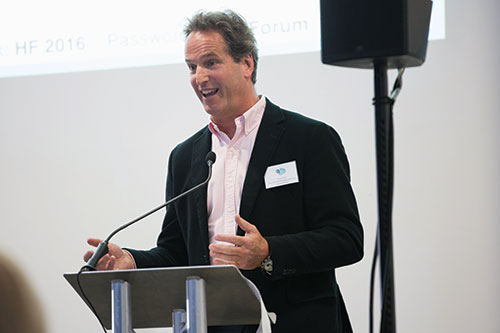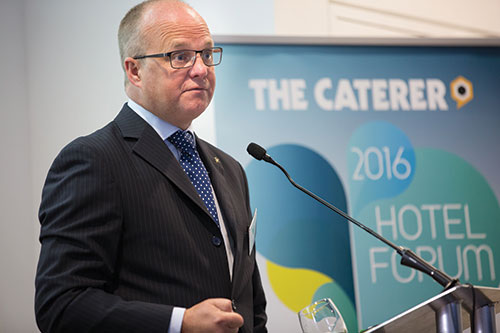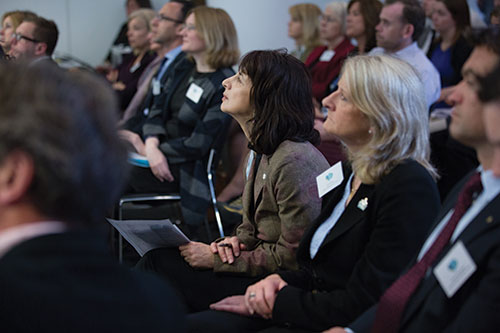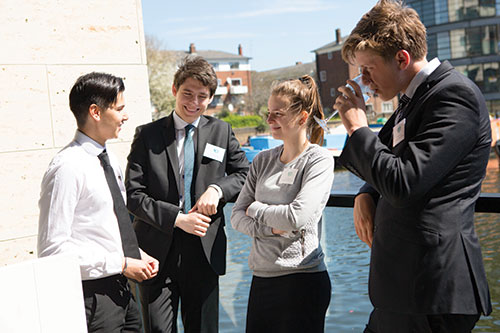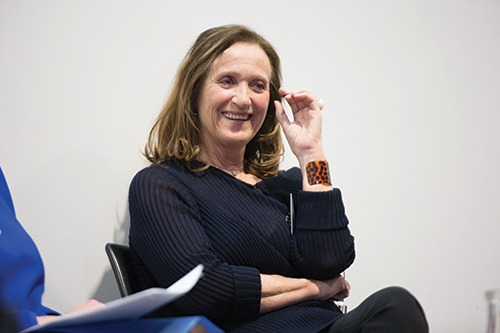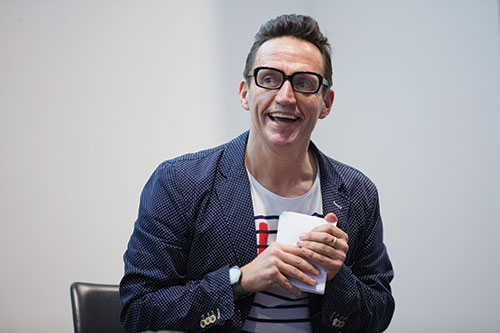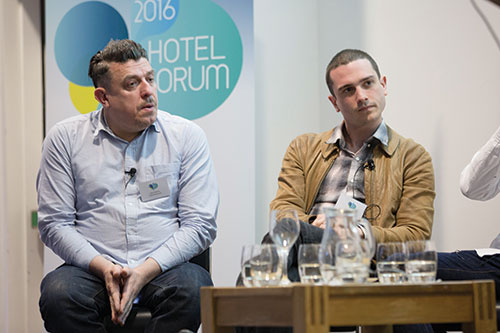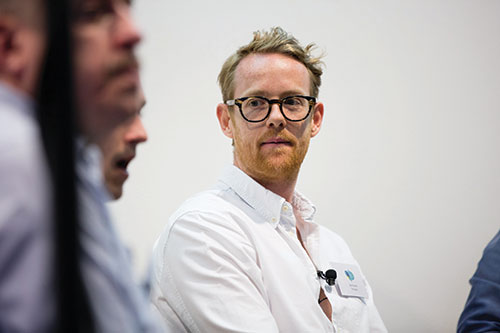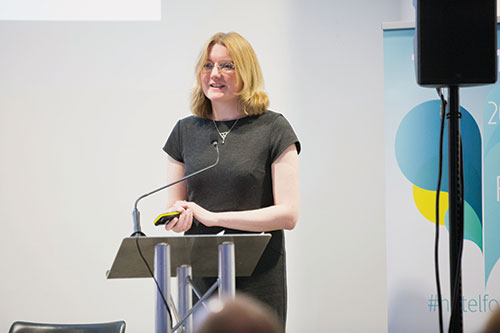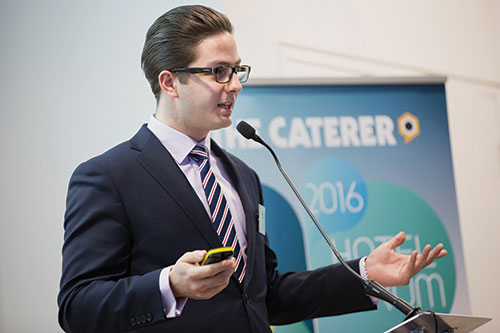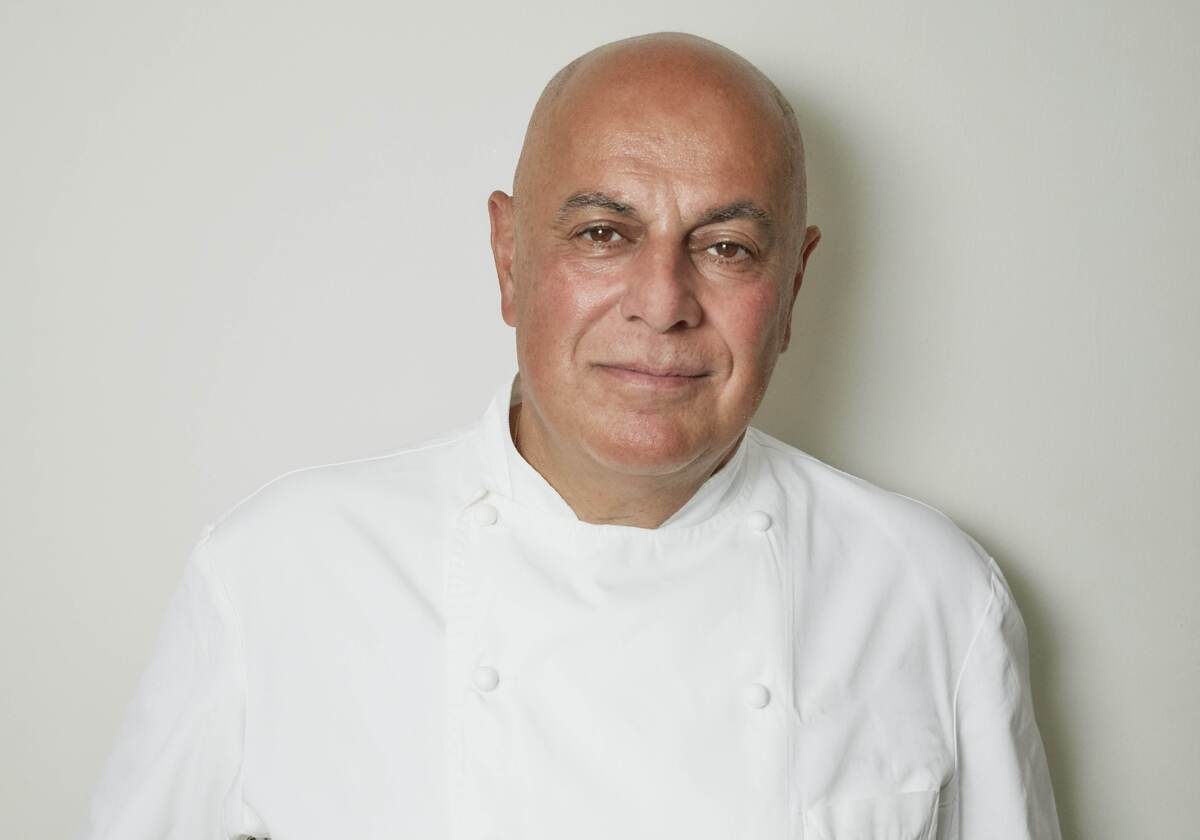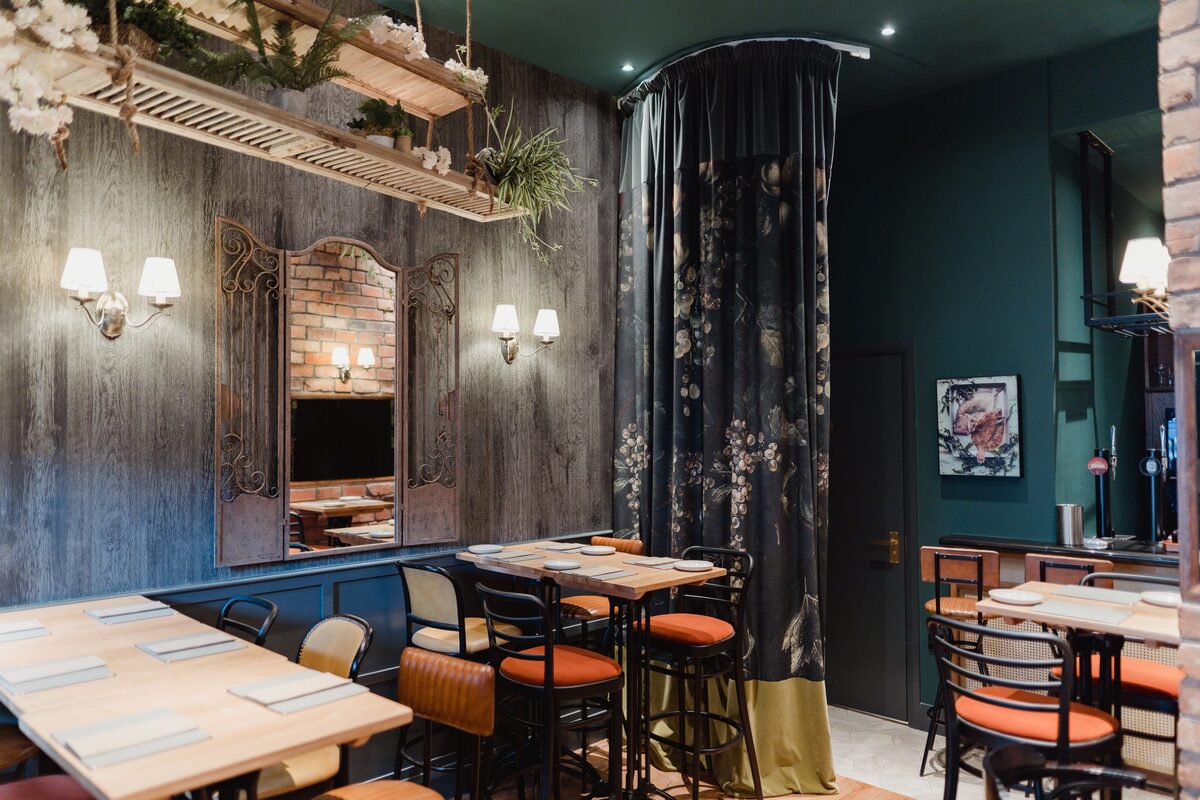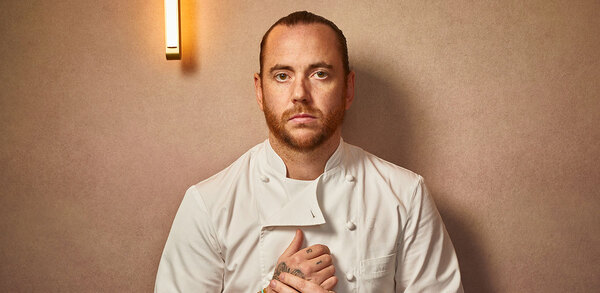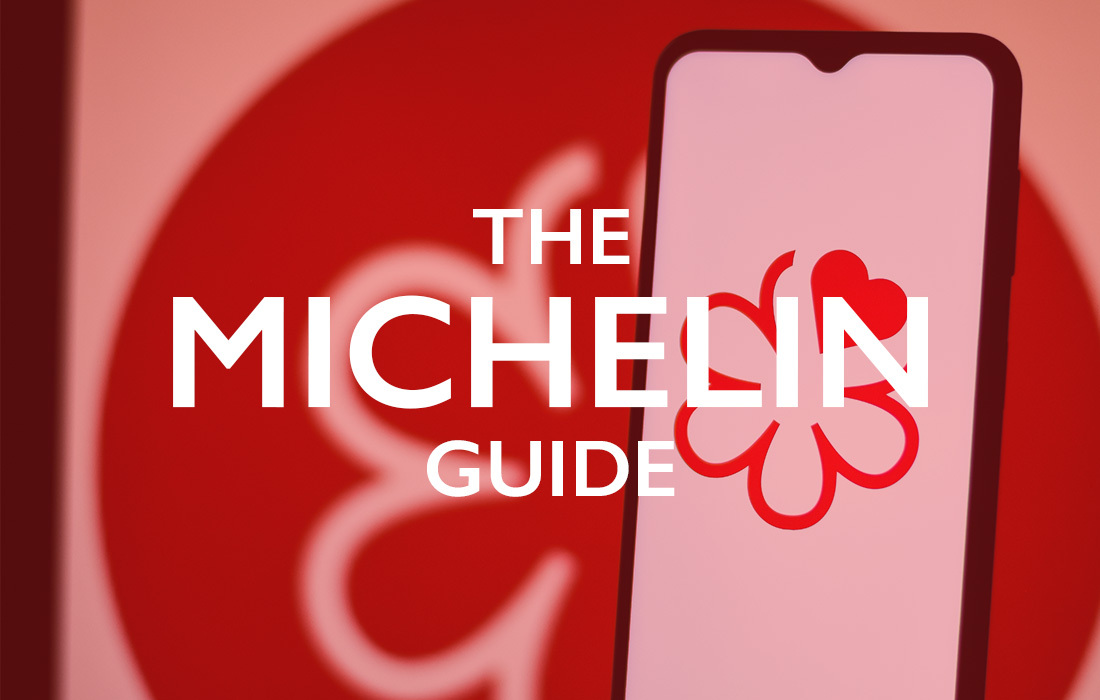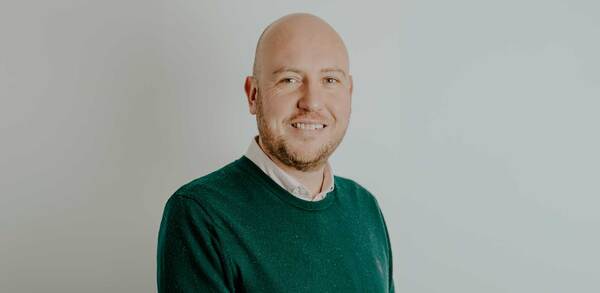How to brand a business: news from the Hotel Forum
Delegates at The Caterer's inaugural Hotel Forum at Kings Place, London, heard industry experts explain how to build a brand, why you should enrich your business by employing people with disabilities, and how Jill Stein created a mini-empire. Rosalind Mullen reports
In the keynote speech at The Caterer's
This, in turn, feeds into the marketing strategy. The audience heard that Home Grown Hotels, operator of the Pig, will open its fifth hotel in Honiton, Devon, on 9 July. It received more than 1,000 room nights within 24 hours of unveiling its website. The Pigs, an upscale, relaxed take on the country house hotel, have an average of 32 bedrooms and 88% occupancy throughout the year. Yet, says Elton, this is despite a minimal sales and marketing budget. âItâs about a direct personal relationship with the customer. It is crucial that you make sure your brand dovetails with your guestsâ lifestyles,â he said.
He explained that the Pigsâ guests had become brand ambassadors through their use of social media, including tweets, retweets and Instagram, which all help to do the marketing on the companyâs behalf.
David Elton
âWe value their reaffirmations and their feedback, and weâve made changes as a result in how we communicate. We donât have to pay a consultant, so it saves time and money.â He also stressed the importance of making emails and other communication relevant and regular. âOur customers donât want too much communication unless it is relevant. We never send more than one email a month and we have a good conversion and opening rate.â The company is also quick to change tack: âWe think about what works and what needs to change. We are nimble on our feet.â
He cited a good example. After the first year they felt the booking system wasnât working and so they dumped it and built a new system from scratch, moving to three business areas â" rooms, food and beverage, and spa. They improved e-comm conversion dramatically and used website analytics to facilitate a quicker response time and remove the complexities. âWe are besotted with data; it is the bedrock of our business,â said Elton. Other initiatives include working with similar brands to boost PR and remarketing. âWe remarket to unconverted visitors to our site, enabling huge upselling,â he said.
At question time, one of the delegates wanted to know why the Pigs donât include breakfast in their rate. âWe positioned the Pig as a restaurant with rooms and that dictated the price. We felt the majority of room rates needed to be sub-£200. If we packaged as B&B and dinner, it would have raised the price and the perception of great value,â explained Elton.
Daniel Pedreschi
Employing people with disabilities
Daniel Pedreschi, general manager, Park Plaza Westminster Bridge hotel in London, took to the stage to describe how employing staff with disabilities enriched his workforce. The hotel is already noted for its best practice in hosting guests with disabilities, having won the 2014 Accessibility Award Catey, and it will also host the Team GB paralympic squad before they head off to the Rio Olympics.
Last year, it took part in Channel 4âs Kitchen Impossible, in which Michel Roux Jr offered eight unemployed young disabled people an intensive four-week introduction to catering. In week three, Pedreschi took three of the youngsters on work experience.
âOur HR department interviewed the candidates and we matched them with staff. Each mentee worked front and back of house, which allowed their preferences and their personalities to shine through,â said Pedreschi.
The young people featured in the programme had disabilities such as Touretteâs, blindness, Downâs syndrome and autism but, as Pedreschi told the audience, it quickly became clear they had a lot to offer the workplace. He singled out one mentee with Downâs syndrome as having an incredibly strong presence front of house â" âan outstanding ability of rapport when meeting and greeting guests as they arrived in the hotel lobbyâ.
He stressed it was important to match candidates with a suitable role. One young girl, for instance, found that her physical disabilities made her lack confidence front of house. The team assessed her strengths and discovered that she thrived as part of a large banqueting team where there was less social pressure.
âIt was inspiring,â said Pedreschi. His advice to employers is that it is sensible to give a disabled person a work trial first because âit is longer than an interview and means you can spend longer getting to know your staffâ.
The hotel works with charities such as Action on Disability and the Shaw Trust, which facilitate work placement schemes for people with disabilities.
And he advised: âWe do it because it is the right thing to do. But donât do it unless you are committed, as there is too much at stake.â
In conversation with Jill Stein
In the final session of the day, The Catererâs hotels editor Janet Harmer sat down with Jill Stein, co-founder of the Rick Stein group, which comprises eight restaurants, four shops, 40 hotel bedrooms, a pub and a cookery school.
The brand was founded in 1975, putting Padstow on the map, and in the past two years it has expanded to Porthleven, Fistral, Winchester and Sandbanks. While her former husband Rick has been the public face of the brand, Jill has been central to its development for the past 40 years. She told the forum about those formative years and about her latest plans for a 100-seat restaurant in Marlborough.
You opened the Seafood Restaurant in 1975. What were the chief attributes you had to draw on in the early years?
Hard work. Rick and I didnât have a plan; we just learned our craft. We started off as amateurs and Cornwall was a wild frontier so we could do what we did with no expectation or judgement. The expansion outside Padstow is more frightening as there is a lot of expectation.
You grew organically. How important was that process?
We didnât borrow, we did it on bank loans so we were never scared. It was in our control and we did it all gradually
And the design side was taken over by you, while you still worked front of house?
The design is as important as the food. You have to walk in [to a restaurant] and think âIâm going to have a good time hereâ.
What are the key considerations in the bedrooms?
The bedroom needs to be better than it is at home â" the best showers, beds and linen and so on. Housekeeping is important. Our hotels manager is always upgrading the rooms and I talk to her on a daily basis. Our businesses are coastal, so I choose light colours and a minimal style. I go for a simple design because Rick has a simple style of cooking.
In February, you got permission for a restaurant in Grade II-listed Lloran House in Marlborough â" tell us about your plans
Marlborough will be different [because it is not on the coast] â" there will be warmer colours. It is opening in September and I am already on-site talking to the contractors and architect Stiff + Trevillion with my son Ed and daughter in law Kate. My other son, Jack, will be in the kitchen and Rick has an input, too. We listen to what he thinks.
Do you recruit formally trained staff?
All of the operations team is formally trained. That is important. But it pleases me to grow people from within â" you need both.
Having been in the industry for 40 years, do you think it is easier or harder now to be entrepreneurial?
Forty years is a lifetime. It is harder to be an entrepreneur now because everyone wants things to be perfect.
What advice would you give to young hoteliers or restaurateurs wanting to make it on their own?
Be brave. Go for it. Follow your instincts and take risks â" though we didnât take financial risks.
Why did it take so long â" until opening in Winchester in 2014 â" to expand the business?
It started to happen when John Jackson came on board. Rick and I wanted to expand, but it was always the wrong time â" divorce, Australia and so on. John could see the Rick Stein brand was trusted and he came in and started to expand. It gave us new impetus. However, as a family, we all need to feel that a site is right for us.
Do you have plans to step back?
I canât imagine not working. I love the people who work for me and I enjoy every minute.
Â
Food and beverage with a difference
In a world where consumers can buy tasty food at a garage or department store, everyone in the food and beverage world is fighting for attention. Robbie Bargh, founder of the Gorgeous Group, an international hospitality agency that specialises in bars, cafés, restaurants, brands and service, chaired a panel discussion with some of the more creative operators in the F&B world:
- Luke Cowdrey, co-owner, Volta restaurant, Manchester
- Robin Gill, executive chef-owner, the Dairy, the Manor, Paradise Garage and Counter Culture, all in London
- Ben Russell, acquisitions director, Ennismore (Hoxton)
- Jackson Boxer, chef-owner, Brunswick House, Vauxhall, London
Robbie Bargh
RB: So how do you discover your audience?
BR: At Ennismore, we own all our estate, so everything must stack up in terms of bricks and mortar as well as operationally. Our Hoxton hotel brand is built on the success of the restaurant [run by Soho House]. Reception is miles away, so when you walk in we donât look like a hotel at all. Some 20% of our guests are corporate, so the hotels need to be in emerging areas. We want locals to enjoy them too, and so do not target a particular background.
JB: When we started Brunswick House, I had a 10-seat coffee bar and spent six years transforming it into a 70-seat restaurant. For that, it needed a city-wide reputation. Making nice food is not enough nowadays. You need to think about the hospitality. We are restoring a sense of edge, a raw sense of electricity re-injected into the food. I tell staff âthis is our houseâ and empower the team to create a warm space that people delight in.
I see a threat coming from food delivery companies. They are an easy option that, to me, subverts the reason for going out â" I believe a restaurant is there to give memories.
Robin Gill
RG: Our restaurants are within five minutes of each other, so we have to know what each audience wants. The Dairy is relaxed and the Manor more of an occasion. I opened the first with six people. I underestimated the clientele and was doing âcheffyâ dishes. But nobody was ordering cassoulets. I realised there was a gap in the market for an open kitchen through talking to guests and figuring out what they wanted. You cannot be afraid of criticism and change â" you have to be open.
LC: We opened in a residential area [West Didsbury] and I got to know it by drinking there every night. You need to because Manchester is a picky market. We had no money, so we first opened a bar and then a 32-seat restaurant. You need a story in the area or a place doesnât last. It is important to pound the streets on a Monday night in January and find out why people are eating there. You canât create something shallow.
Luke Cowdrey and Jackson Boxer
RB: How important is the breakfast market?
BR: In 2012 when we bought Hoxton the concept had a grab-and-go breakfast bag. Some guests complained â" some raved about it. Breakfast [in the restaurant] is now big for us. In London, people have clocked on to breakfast meetings and the price point reflects the brand. It is value driven. Avocado, poached egg and sourdough [at £9] is our biggest seller.
RB: What about the rest of the menu?
LC: We offer small sharing plates, which Manchester didnât understand. They werenât Spanish tapas and people didnât like pairing food from around the world. If weâd called it tapas we would have been full from day one. Now it is easier because the food revolution is coming through. Tastes change.
Ben Russell
RB: How do you retain and attract staff?
JB: With the spate of restaurant openings it is hard to find staff. If you have a reputation for allowing creative input and an environment of learning and contribution â" staff go for that. RG: We create a family. There is that relationship between the guys on the floor and the customers.
BR: We are lucky to work with Soho House [in our restaurants] because it is a fun place to be and many dynamic chefs want to be part of the journey. Itâs more than just food â" itâs the whole ambience. Itâs high-energy. People stay in the hotel, so Soho House has to be aligned. A bad review on TripAdvisor will reflect on Hoxton. And it works the other way, too.
Hospitality Action Employee Assistance Programme
Industry charity Hospitality Action (HA) manager Camilla Woods took to the stage to outline the benefits to both staff and employers of its Employee Assistance Programme (EAP), which has gathered momentum since its launch in 2014. Woods described EAP as a niche, independent, confidential advice, support and assistance service, available for hospitality employees 24 hours a day.
Camilla Woods
She was joined on stage by Daniel Pedreschi, general manager at Park Plaza Westminster Bridge and chairman of the London board at HA, who revealed that some 4% of his employees have contacted the EAP helpline, seeking advice on issues as varied as a difficult situation at home and how to get grant assistance.
He added: âMembership costs just £5 per head per year â" itâs just another investment in your team.â
For more information, visit www.hospitalityaction.org.uk
Service matters
Daniele Quattromini, manager of the Lusso-operated Club Lounge 39 in One Canada Square, shared his experiences of being awarded the 2015 Gold Service Scholarship and called for the industry to put forward as many young people for the award as possible. He referred to the fact that this yearâs winner, Jennifer Santner, was presented with her award by the Queen.
âHer Majesty is providing awards to waiters, so the time has come to champion our industry,â said the 26-yearold, who acknowledged the support of mentors such as Willie Bauer, former chairman of AB Hotels.
Daniele Quattromini
âAt first they terrified me, but now I count them as friends,â he said, and revealed that his contacts list is in good shape.
âWinning was the single most proud moment â" although I was also an Acorn winner in the same year. I met interesting people and had amazing experiences, including a stage at the Waterside Inn and working with Silvano Giraldin [at Le Gavroche].â
For more information about the Gold Service Scholarship, visit www.thegoldservicescholarship.co.uk
Â



